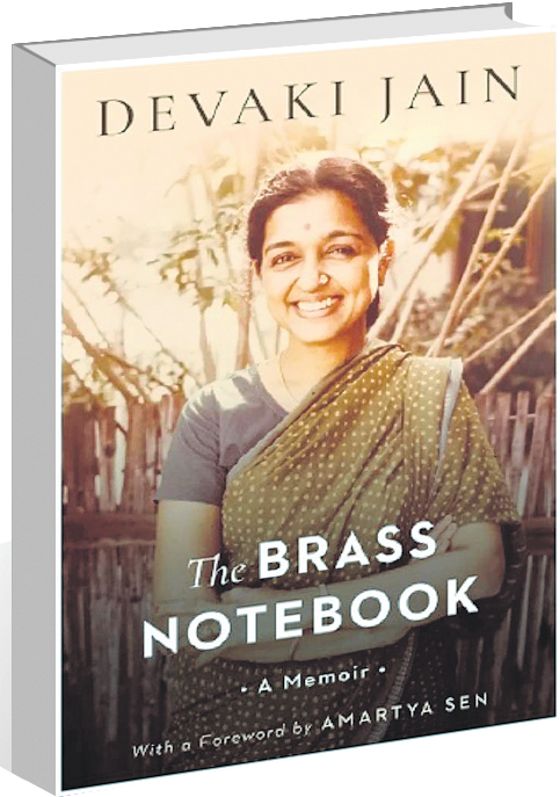The brass notebook by Devaki Jain. Speaking Tiger. Pages 215. Rs 599
Book Title: The Brass Notebook
Author: Devaki Jain
Renu Sud Sinha
The title of feminist economist Devaki Jain’s (87) memoir, ‘The Brass Notebook’ has been inspired by Doris Lessing’s ‘The Golden Notebook’. Not just the title but the idea of the book itself was suggested by Lessing when Jain first met her in 1958. It took Jain 60 years to heed that advice. And we should be glad at this delay — what a journey these six decades have been!

The book, divided into seven parts, follows an interesting format. It doesn’t go the typical, traditional route of a memoir in chronological order but is segregated into personal and professional years/events.
Born in 1933, Jain calls herself ‘the before midnight’s child’. The events that scripted the history of free India also shaped her life. Hailing from an influential Tamil Brahmin family, and later married to Gandhian activist Lakshmi Chand Jain, she had the good fortune to meet various national and international leaders, activists and scholars and that understandably impacted her life. Jayaprakash Narayan, Vinoba Bhave, Nelson Mandela, Desmond Tutu, Amartya Sen, Gloria Steinem, Dr Julius Nyerere, Kamaladevi Chattopadhyay, Iris Murdoch... her list of acquaintances, friends, colleagues reads like an international who’s who.
Always clad in sarees, her traditional appearance belied the free spirit that she always was — although she claims that she came across the concept of feminism only when she met Steinem. While her sisters had been married off before 18, she was vaulting across the UK and Europe acquiring degrees and experiences.
Professionally, Jain, who taught economics at Miranda House, New Delhi, for some time, has done pioneering work in giving shape to women’s movement in India, particularly at the grassroots.
A Padma Bhushan recipient (2006), Jain has founded and been involved with various initiatives and institutions that have done ground-breaking work in recognising gender inequalities in work force and establishing policies to address the imbalance.
Honesty permeates the narrative in whatever challenges she has faced in her life — whether sexual exploitation and harassment within the familial confines or at workplace. She has candidly narrated a molestation attempt by a professor during her Oxford years and how the trauma eroded her self-worth and affected her academic performance.
This candidness has also extended to several other areas whether she talks of her romantic encounters or her sexual escapades during her Oxford/St Anne years or her abortions before marriage.
But above all, this thoroughly enjoyable book is a must read for everyone — for women to know how to survive and succeed in a patriarchal society, for men to know that women are not a weaker sex but just unaware about their inherent strength, and for policymakers to know that even seven decades after Independence, the basic flaws in their policies on women empowerment have still not been addressed.














